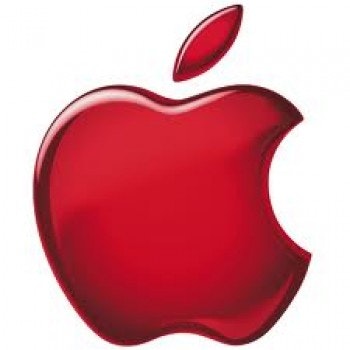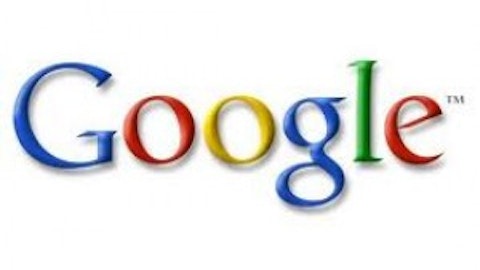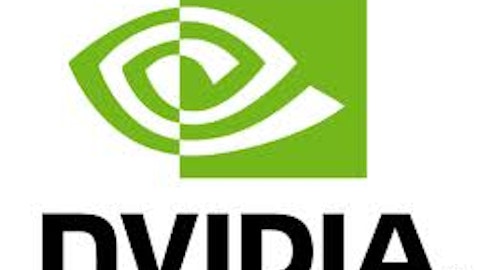Currently there are legal battles under way involving two of the largest names in technology. Apple Inc. (NASDAQ:AAPL) got some bad news this week when the judge hearing the case brought by hedge fund star David Einhorn said the suit may succeed. On the slightly more esoteric, but arguably far more expensive, end of the spectrum, new privacy regulations have the potential to cost Google Inc (NASDAQ:GOOG) up to $1 billion in fines. While neither legal dispute has concluded, shareholders and potential shareholders will do well to follow each of these stories.

In case you somehow missed it, Einhorn’s Greenlight Capital recently filed suit against Apple Inc. (NASDAQ:AAPL) in an effort to block the Feb. 27 shareholder vote that would potentially prevent the company from issuing preferred shares without shareholder approval. The suit is based on a securities law that prohibits bundling of different issues into a single proxy vote, which Apple did. Einhorn’s motivation is to induce the company to return a larger portion of the $137 billion of cash it holds to investors.
U.S. District Judge Richard Sullivan made indications earlier this week that the hedge fund has a colorable claim: “Candidly I do think the likelihood of success is in favor for Greenlight.” The remaining issue is for the judge to determine if the case involves the potential for “irreparable harm” to the plaintiff. If so, the shareholder vote scheduled for the end of this month will likely be stopped. While Apple Inc. (NASDAQ:AAPL) continues to contend that it has not done anything wrong, the leanings of the judge do not bode well.
The absurdity of the entire exercise is that even if the case is successful, Apple Inc. (NASDAQ:AAPL) will have the ability and the right to “unbundle” the various elements of Proposal 2 for a straight vote. There does not seem to be any clear sense that the majority of shareholders oppose the idea of the company being required to get approval before issuing preferred shares. While Einhorn contends that this requirement makes it unnecessarily hard for Apple to issue preferred shares, which he wants to see happen, even the ability to issue preferred shares does not mean it will happen.
Ultimately, the public perception loss on the matter, even if it has little practical impact, is the largest negative for the company. While I would not sell to avoid fallout, it would be reasonable to wait until the decision is rendered to buy new shares. The long-term prospects for Apple remain solid, but this is one more snafu it could have done without.
EU gives Google Inc (NASDAQ:GOOG) serious side-eye
Recently, the European Union commissioner for justice Vivian Reding said that new rules are being formulated that would give the power to fine U.S. companies across the entire EU to a single point of contact: “The one-stop-shop regulator could threaten a company which does not obey the rules with a fine of up to two percent of global turnover.” In Google Inc (NASDAQ:GOOG)’s case, that fine could amount to as much as $1 billion for violations of the EU policies. Reding explained that Google Inc (NASDAQ:GOOG) has been warned to change its policies, but that the complex, cross-border nature of the claims makes punishment difficult.
When this new structure goes into effect, this impediment will be eliminated and the fines could become stiff. The central issue at dispute is the practice by Google Inc (NASDAQ:GOOG) to aggregate user data across all of its services. Regulators claim this violates users’ privacy, largely because European regulations require users to specifically opt into all data collection activities. Google maintains it is not in violation of any laws.
Leaving aside the fact that it seems unthinkable to suggest that aggregated user data is a violation of one’s privacy, you must wonder what the real motivation of the EU commission might be. It could be argued that the policy is being crafted to perform a quick cash-grab on U.S. companies to help the struggling EU economy. Likewise, I believe there is an argument that by creating unduly restrictive regulation, the EU is trying to clear the way for its own domestic players to have a chance to compete.
I do wonder how the entirety of Europe would react if Google simply said, “No, thank you.” What would the public backlash be if overreaching regulators drove Google out of Europe? This is not likely to ever happen as too significant a portion of Google’s revenue comes from there, but it is a nice thought exercise. As the world continues to become increasingly subject to extra layers of burdensome and unneeded regulation, you must wonder when some major player will simply say, “Enough.” If Google said that it declined to pay, what would happen? Does turning off Google in a major part of the world not cripple a critical piece of the Internet as a whole?
From an investment perspective, the new rule may have a limited short-term impact on the company as it is forced to adapt to the new regulation and protect itself. There is not likely to be a lasting impact unless battle lines are drawn. You should remain aware of what is going on, but don’t fear that such events will be a significant negative catalyst for shares.
The article 2 Top Legal Battles in Technology originally appeared on Fool.com and is written by Doug Ehrman.
Fool contributor Doug Ehrman has no position in any stocks mentioned. The Motley Fool recommends Apple and Google. The Motley Fool owns shares of Apple and Google.
Copyright © 1995 – 2013 The Motley Fool, LLC. All rights reserved. The Motley Fool has a disclosure policy.





